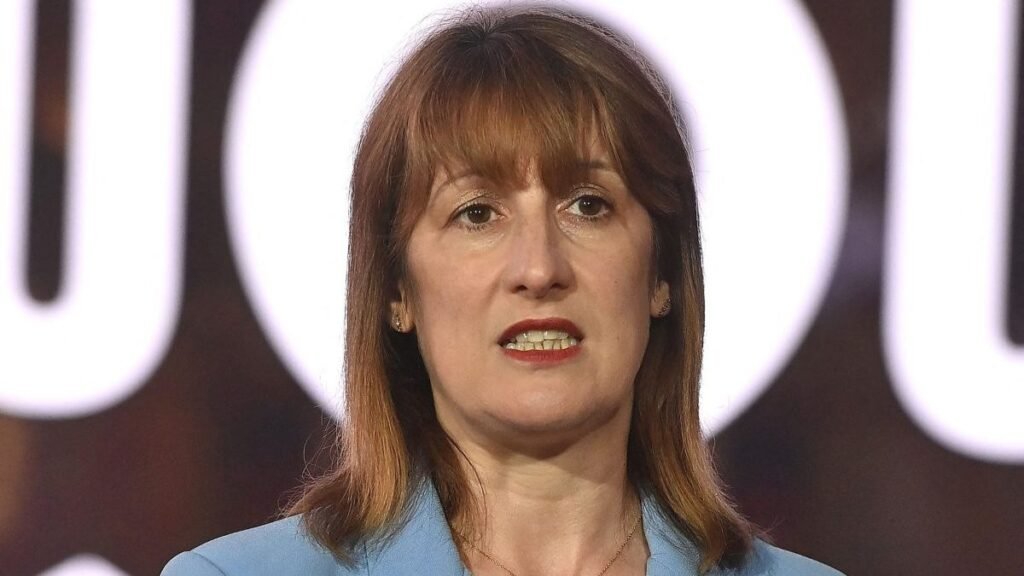The introduction of a new property tax would lead to a “significant slowing down of the property market” and is likely to see a drop in revenue for Chancellor Rachel Reeves, leading tax specialists have warned.
It comes after reports suggested that Rachel Reeves is considering plans to raise money from a tax on the sale of homes worth more than £500,000 as part of radical new measures to overhaul both stamp duty and council tax.
Treasury officials are looking at a potential national property tax, which would replace stamp duty on owner-occupied homes.
While no final decision has been made, it is thought this national tax could help build a model for local levies to replace council tax in the medium term.
But tax and housing specialists have raised concerns that the measures could have serious impacts on the housing market.
Drop in tax revenues
Heather Powell, partner at tax and accountancy specialists Blick Rothenberg, said: “The immediate result of the introduction of a national property tax is likely to be a significant slowing down of the property market, particularly in the South East where the average price of family homes is over £500,000, and a drop in the tax revenues collected by the Government.
“Not the answer the Chancellor needs when trying to fill the £40bn black hole in her Budget.”
Buyers currently pay stamp duty under the existing framework, if they purchase property worth more than £125,000. The threshold is £300,000 for first-time buyers.
The new levy would be paid by owner-occupiers on houses worth more than £500,000 when they sell their home, with the amount due determined by the value of the property and a rate set by the Government.
The move could also push up house prices for first time buyers, Peter Graham, partner and tax lead for real estate and construction at RSM, said.
“The Treasury’s potential new tax on the sale of homes … would eliminate taxation on the purchase and sale of lower value homes. This might potentially drive up house prices at the lower end with any stamp duty land tax savings potentially eaten into with higher purchase prices,” he said.
He added: “The proposed tax reform would have a significant impact on the London market, given the average property price is well above the £500,000 threshold.
“London already runs the risk of becoming an ageing city, with young professionals moving out of London due to its high house prices and surging rental costs. We could therefore see a slowdown in London transactions, with sellers delaying moving/downsizing to avoid being hit by the tax.”
‘Asset-rich, cash-poor’ could also be hit
Housing market experts said the move would also disproportionately hit the so called “asset rich, cash poor”, who are often pensioners that bought their houses decades ago but are living off their pensions.
Tom Bill, head of UK residential research at Knight Frank, said: “The risk of such an approach is that it penalises individuals who are asset-rich but cash-poor, which is often the case when a person has lived in the same house for a long period of time. An arbitrary cut-off of £500,000 also risks creating distortions in the property market like those we saw under the old slab stamp duty system.”
Such a major change to the tax system is unlikely to be ready until potentially the next parliament, meaning Labour would have to be re-elected to enact it.
Former government adviser Tim Leunig has previously suggested replacing stamp duty land tax with a “national proportional property tax” levied on house values greater than £500,000, in a paper published by the think tank Onward.
At a rate of 0.44 per cent, with a 0.278 per cent supplement on values over £1 million, the levy “would raise the same amount as stamp duty”.
‘Tax-grab would punish families’
Sir Mel Stride, Conservative shadow chancellor, said: “The Conservatives have warned that more taxes are coming and now reports are emerging that the family home is next in the firing line.
“This tax grab would punish families for aspiring to own their own home.”
The Chancellor needs to raise up to £40bn at the Budget to meet her self-imposed fiscal rules of not funding day-to-day spending by borrowing – as well as keeping Labour’s manifesto pledge not to raise taxes on working people – ruling out hikes to VAT, income tax and national insurance.
She has come under pressure from Labour colleagues to impose a ‘wealth tax’, which it could be argued a property tax would be.
A Treasury spokesperson said: “As set out in the plan for change, the best way to strengthen public finances is by growing the economy – which is our focus.
“Changes to tax and spend policy are not the only ways of doing this, as seen with our planning reforms, which are expected to grow the economy by £6.8 billion and cut borrowing by £3.4bn.
“We are committed to keeping taxes for working people as low as possible, which is why at last autumn’s Budget, we protected working people’s payslips and kept our promise not to raise the basic, higher or additional rates of income tax, employee national insurance, or VAT.”

